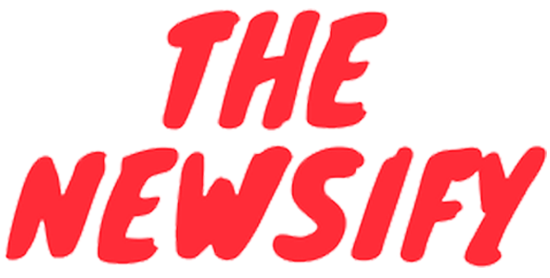It can be incredibly daunting to change careers. You feel like you have put so much time, effort, and energy to get where you currently are that it may seem like the best way to go is further up, but if you aren’t passionate (and even hate) what you do, then no amount of upwards progression will help. You deserve to find a role that you feel fulfilled in and pays well, and if this is nursing, you shouldn’t second-guess yourself. There are so many reasons why nursing may be right for you. Perhaps you always dreamed of being a doctor, but the education requirements were too expensive or took too long. Perhaps you were recently inspired by a nurse in your own life who made a big difference. The fact is if you have a passion for helping others and an interest in the sciences and medicine, then nursing can be the perfect career for you.
There are so many ways you can use your nursing career as well. If working in a hospital and directly with patients doesn’t work for you, you can move into a leadership role or research role. You can work in hospitals and clinics, but also remotely, in universities, or on short-term projects that need a medical team on-site to go smoothly. There are so many possibilities for your next career as a nurse, but there is a big barrier to getting started, unlike other careers. The good news is that this same barrier actually makes it far easier and straightforward to get your first job as a nurse, and it’s this: a degree.
To become certified as a nurse in every state, you need to complete an accredited nursing program and take the nursing exam. This will either provide you a state license or if you are located within the eNLC, a multi-state license that can be used in most states around the country. It can be daunting to get started with a second degree, especially if you need to first go back to school, but with this guide, you’ll understand your options and how to best adapt your schedule and routine to learn better and faster, so that you can get started with your second career in just a few short years.
Routes into Nursing for Second Career Professionals
There are a few different ways into nursing as your second career.
If You Don’t Have an Undergraduate Degree
If you don’t have an undergraduate degree, then you’ll need to go for the full BSN. This can be completed either part-time or full-time. It can also often be completed online, except for the mandatory in-person clinical experience required for every nursing degree. The BSN is a full bachelor’s degree. Whether you continue to work or take on the degree full-time is up to you and your situation.
If You Do Have an Undergraduate Degree
If you have an undergraduate degree already, you can use that to fast-track through your BSN. Though any undergraduate degree will do, you will need to make sure that you have a few prerequisite courses under your belt. If you have completed an undergraduate degree in chemistry or biology, then chances are you already have most if not all of the undergraduate credits you need. If not, don’t worry. You can take these courses separately at your own time, and once you have them can then apply to your accelerated degree.
Necessary Prerequisite Courses
In order to apply for an accelerated nursing degree, you will need to have had a minimum GPA of 3.2 and also have 8 credits from Anatomy and Physiology I and II, 4 credits from General Chemistry with Lab, 4 credits from Microbiology with Lab, and also 3 credits from Intro to Psychology or Sociology. You can get in touch with the admissions advisor for the accelerated program you want to apply for to learn more about where you can earn these credits and how long it will take.
Your Options
You have two main options. Either you can opt for an accelerated BSN or an accelerated MSN. There are universities that specialize in both. Elmhurst University direct entry nursing programs prepare you to become a licensed RN, with the MSN program preparing you even further to become a Clinical Nurse Leader. Both accelerated options are great choices to kickstart your nursing career and prepare you to further your career with an MSN or a post-graduate certificate later on.
How to Choose the Right Route (and Degree)
Understanding the routes you can take is slightly different than choosing the right degree. In some cases, it is easy. Earning an accelerated MSN to become both an RN and a CNL is a very easy choice because there is only one option currently in the country. Other options, like a full or accelerated BSN, are offered by more providers. The good news is that, so long as the degree is accredited and recognized by the exam board, you are fairly certain to learn everything that you need. Rather than worry about getting the best education, it is actually better to look into the institution’s levels of support.
You’ll want to have a successful coach and advisor that you can turn to when you need help, advice, and support from your institution. Having access to both faculty and your peers is another critically important part of successfully completing your education. Don’t ever underestimate the social aspect of education. Correspondent degrees have been around for more than 100 years, and yet it was only with online education that could connect students not only with the course material but also with their faculty and fellow students that remote learning really started to take off.
The old issues of online learning are also no longer a problem. With so many students suddenly needing to learn remotely, massive investments and advancements came to the online learning platform. Today it is far more intuitive and allows for a more comprehensive and engaging learning environment than ever before. Earning a degree online does not mean that you sacrifice quality. Every nursing degree will have in-person learning periods. This is due to the clinical placement and clinical hour requirements you will need to complete. However, these stints in-person are only a few weeks long so you can easily relocate in a short-term rental situation while you complete the clinical portion of your degree.
How to Set Yourself Up For Learning Success
Choosing the right degree means choosing the right one based on your needs and goals. This degree should offer you the right level of support to get help when you need it and get the most out of your degree. Universities aren’t just places where you learn, they are also where you start your career. Look into additional benefits and tools that your university offers, like its careers center.
Other than getting the most out of the resources available through your university, you also need to look at home. Setting yourself up for learning success means keeping structure. Many who learn remotely can find it difficult to stay on top of the tasks and to study as required. It can be all too easy to let your time pass you by and then have to race to catch up to the next deadline. The best way forward with your degree is to create a routine and an environment that closely replicates that routine and environment you would experience if you were attending university in person. From having a great at-home study location to knowing where you can go outside your home to quietly study, to building the routine that will help you thrive, these tips will help you set yourself up for learning success:
1. Creating Your At-Home Study Environment
Once you have applied, a great next step is to set up your home. If you have a room you can use as an office; then this is a great destination to focus on. If you don’t have that extra space, setting up a desk or the kitchen table will have to do. Ensure that you have the space and have the means to keep that space tidy so that you have the space and frame of mind to be productive and study.
This is important if you have taken on that accelerated degree full-time or going through a full degree part-time. You won’t want to set up your desk space in your bedroom. This is something that many university students do, yes, but if you have more than one room putting your study space elsewhere can help you stay focussed and can also help improve your quality of sleep.
2. Finding the Right Tools for You
There are so many tools available that will help you study, learn, and memorize the way that suits you best. All of us learn and understand information differently. If you don’t learn best through reading, listening, or doing maybe better. Regardless of what approach works best for you or how you need information explained, it is always worth investing your time and energy.For example, if you have a certain way of explaining the information you are learning so that it makes more sense to you, then do it. This could be written or audio notes that can be reviewed on the go. Don’t be afraid to use tools, either. There are digital zoom study spaces where, essentially, you sit around other studying students virtually so that you can put yourself in a frame of mind that makes it easier to study. Note-taking tools, annotation tools, and more work towards making it easier to extract and keep track of information. Find the tools that work for you, follow a few tutorials to learn what that tool can do and how to use it, and you’ll find it can be much easier to study, revise, and keep track of your notes.
3. Free Places to Study Outside Your Home
There are many excellent spaces that you can study in away from your home. The first place you should look to is your local library. These libraries are free to visit, and you can spend the entire day there studying. Not only that, but you can even potentially find additional reading or other useful tools from books to videos that will help you learn and absorb the information better. Community spaces, parks, and of course, cafes are all great places to study. Don’t be afraid to take your learning outside, either. Being around nature can help with stress management and can also help your memory, so if the weather is nice, put on some noise-canceling headphones and head outside to learn in the sunshine.
4. Building a Routine that Helps You Learn
Consistency is key when you learn remotely, and a routine is where you can find it. However, you do have to be wary of tackling long hours all at once. Eventually, your mind will tire, and it doesn’t matter how long you sit at your desk; you won’t be able to absorb or keep track of new information. You are better off taking on your degree in short spurts throughout the day. You can start in the morning by watching a lecture and taking notes. After that, you can take a break, get outside, and have fun. After lunch, you can get back into it and read a few medical journals or spend time reviewing your notes.
To build a routine that works, start first with any specific timed events, like seminars, and build your routine so that you can combine both interactive learning activities with personal learning activities. Spread them out through the day, and you’ll learn better while simultaneously making it feel easier. Done right, you can build a great, stress-free routine that helps you successfully complete your degree and make that first key step towards your second career as a nurse or other similar healthcare professional.












Leave a Reply